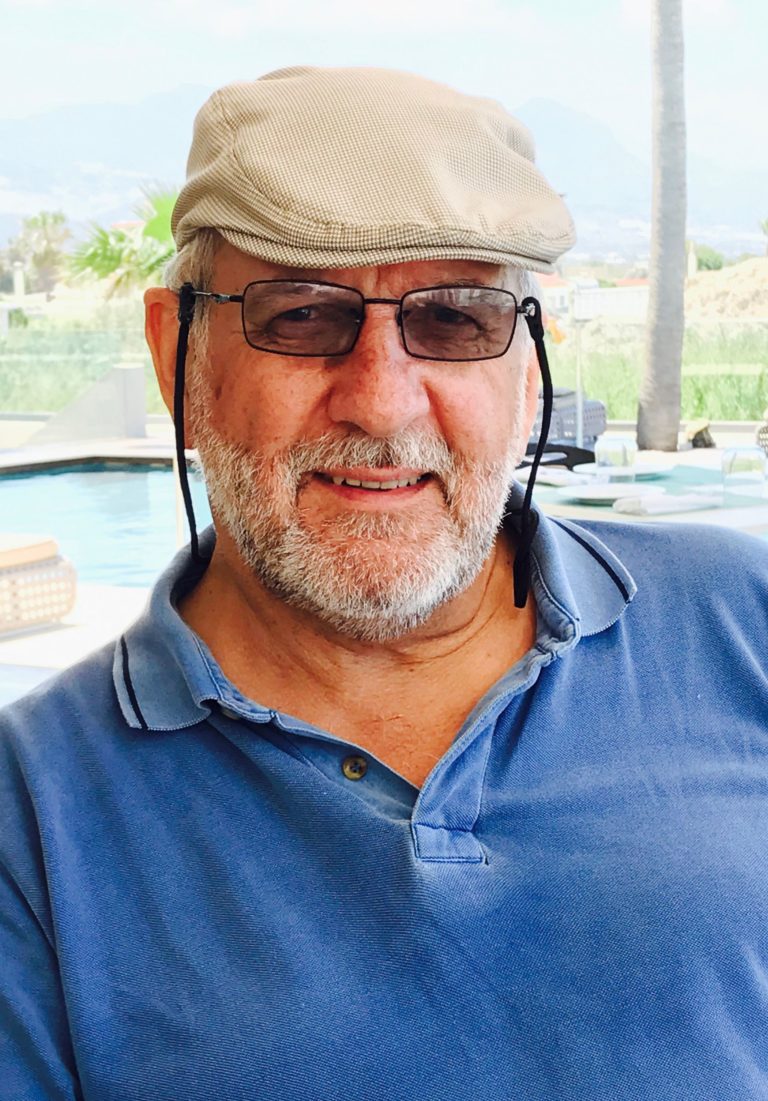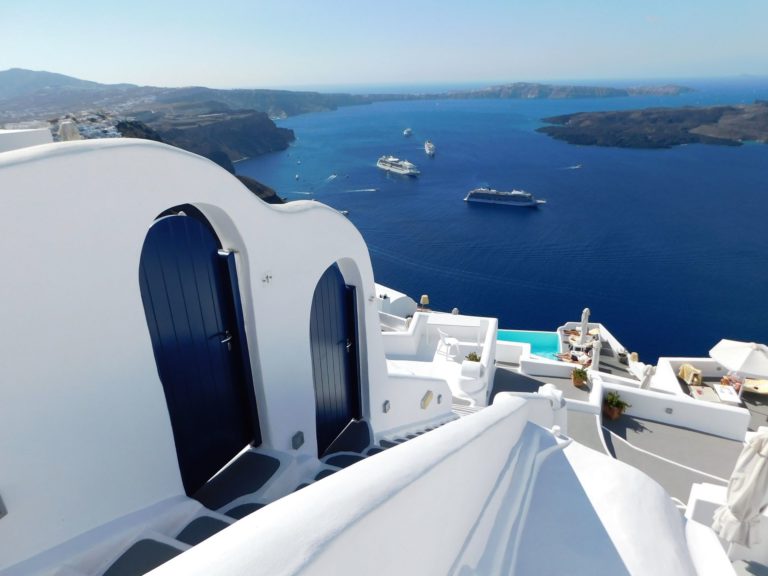Despite the fact that 64-year-old travel author, photographer, lecturer, interpreter and translator Paul Hellander was born and raised in the United Kingdom, growing up nextdoor to members of legendary band The Beatles in Liverpool, and chose to migrate to Australia in his adulthood, to date, very little has managed to overshadow his romantic attachment with Greece, which started in his youth and has persisted ever since.
“I might not have a single drop of Greek blood running through my veins but that doesn’t mean I am not in love with Greece,” says Hellander who studied Classical, Byzantine and Modern Greek at Birmingham University. He currently shares his time between Greece and Australia working as a freelance travel writer and photographer, promoting Greece, the Greek islands, and the Greek way of living, for international travel magazines and renown travel guide book publisher, Lonely Planet.
“The love affair dates back to when I was still at school in England.
“Ultimately, I didn’t choose Greece, Greece chose me. One day I happened to open an atlas and the page turned to Greece. I knew then that I had to go there. It was one of those callings that was so definite in its intent. I think we all get a calling for something. This was mine and it was confirmed as soon as I got there. It really felt like home,” says Hellander who, with an English mother and Finnish father, chose to follow a completely different path immersing himself in a culture different to the one he was born into.

“As soon as I saw the script written in the Greek language, through the Classical Greek school texts of senior students, I was immediately drawn to it and totally intrigued by it. I decided there and then that I wanted to learn Greek and master its script.
“As I slowly read the texts of Homer, Aeschylus, Herodotus, and Thucydides I started to teach myself Greek from a book. I secured some Greek newspapers from Cyprus and would try to read them on the way to school on the bus, much to the utter puzzlement of my fellow passengers.
“There is no daughter language, inasmuch as as Italian, Spanish or French are the daughters of Latin. Greek stands alone in the linguistic world yet is Europe’s oldest continually documented language,” explains Hellander whose proficiency in the Greek language is exceptional.
“Greek is such an emotive and flexible language and can convey pictures through the sound of its words; take for example one of my favourite Greek words, the word παφλασμός as in the expression παφλασμός των κυμάτων. To me it conjures up the gentle splash of water on pebbles on a calm morning on any Greek island beach.”
The adventurous and tireless travel writer is not just fond of Greece because of its linguistic richness. He reveals there are plenty other reasons that made his love for Greece grow stronger over the years.
“During my third year at Birmingham University, I visited Greece as an exchange student and spent some time at Ioannina. I realised that while Greeks share a common ‘Mediterranean temperament’ with many countries – from Iran to Portugal – for me, they are almost indescribably unique in their culture and sense of self,” he says. Hellander returned to his beloved Greece a few years later after losing his parents and brother within a space of three years.
“After losing my family, I realised I had nothing keeping me in England, and Greece felt more like home to me than any other place in the world. I liked the fact that I could become friends with a Greek person in five minutes, whereas it might have taken me five years in England.
“Unlike the English, as soon as I got to Greece, the Greek people embraced me – whether I liked it or not – and there was no escape for me.
“I also was very fond of the Greek light since the first time I had arrived in Greece in the early 70s, overland from the former Yugoslavia and had felt that I had walked out of a dark room into brilliant and untouched sunshine.”

During his stay in Ioannina, Hellander met his first wife and it wasn’t until the Victorian Institute of Education ran an overseas recruitment campaign seeking Greek teachers that Hellander, an adventurous wanderer by nature, decided to temporarily leave Greece and migrate to Australia to do what he loved most: teach Greek.
“I thoroughly enjoyed teaching Greek in public schools in Melbourne but if there is one thing I particularly treasure most about my experience in Australia, it would have to be the relationships I developed and the friendships I forged within the Greek Community who welcomed me as the mysterious ξένο who spoke Greek fluently and was in love with their homeland.”
Today, this ‘British Ulysses’ continues to live in Australia but visits Greece a few times a year to explore its topography further and discover new holiday destinations and hidden treasures for tourists to indulge in. It also affords him the opportunity to spend some time with his two sons who reside in Crete and Ioannina.
“Greece is my second home. It is also my spiritual home and I never get tired of visiting and writing about it because as a nation it carries an individualistic and rebellious streak.”
As for his favourite Greek destination, Hellander doesn’t hesitate to divulge it.
“I don’t even have to think about that one. My favourite island is Patmos.
“Whenever I go there I feel the energy of the place – it is probably on one of the Ley lines. I don’t think it was an accident that St John the Revelator lived and wrote there. He too was in exile and a non-conformist who understood the spirituality of place, the energy that the earth surrounds us with and which I also relate to. The fact is, Greece is a place that radiates a magic that I have never experienced before.
“Frankly I could never get tired of that. I could never get tired of Greece.”

